 By Tina Bastin Lexington High School Student Global Tech Leader “Women aren't objects to be played with, they are humans to be respected; we give rise to humanity.” ~Tina Bastin Goal: By promoting STEM studies for women and recognizing the hardships faced by them in the global tech leadership committee, we, as a community, can excel and support each other as one united force against dehumanization and oppression.
What do “women” mean to you? / Perception: “Women”. This word is perceived differently by people due to their different historical backgrounds. To a homeless individual, it might mean protection. To a daughter, it might mean comfort. To a husband, it might mean love. To a serial killer, however, it might mean another object to be played with. I understand that every individual part of humanity has endured different experiences in life, shaping him or her as the individual they are today. However, this gives no excuse to treat women differently than men. Women have the same capacity to live purposefully and enjoy the same freedom as men, however, they are deprived of these rights due to a variety of factors. I am not saying that all men are manipulative and negatively impact women—there are many men out there that are inspiring and respectful towards the identity of a women. However, a prominent amount of men in society still remain as dehumanizing entities against women. The Beating of the Heart and the Ironic Cycle of Life: Women have to face a constant fear, tightly coiled away in their mind. Imagine a young women standing at the crossroads of her life, confused and terrified thinking about her future. She looks to her right, and she sees a man gazing at her and checking her out with a smirk etched on his face. She looks to her left, and she sees her previous company that fired her because they believed she lacked the potential to work due to her gender. She looks behind her, and she sees the tomb of her late friend, who was a victim of sexual assault and ended up committing suicide. She looks ahead, and she sees her future filled with fear and oppression. She looks further, but cannot see anything. She tries persistently, and a dark shadow starts to grasp her. All she sees is a dead end. A dead end. That is it. Is this what women were made for? To endure hardships in life to only result in a dead end? Connecting this to women in the STEM field, as they persistently try to major in these fields, they feel a dark shadow grasping and choking them—this is the response of society’s oppression against the role of women as strong leaders in the engineering, medical, or math fields. Males should not have the power to control the happiness, the freedom, the dreams, and the longevity of an individual. Sexual assault is a major factor that contributes to the mounting pile of a women’s fear in both her social and work place. She can walk outside in bright daylight and still end up in the hands of a man, wanting to use her as an object rather than viewing her as a human. What is it that makes a women more vulnerable to sexual assault than men? Ironically and sadly, men do not realize that they are taking away a life of a women, yet another women, their mom, had given that same man his life in the first place. She had given him the opportunity to endure joy and adventure. But men, on the other hand, take this life away from women. Where it all started: Media, Society’s Expectations, Ancient Historical Influence, and Stereotypes Our society is shaped by the media. Of course, who does not love watching movies and TV shows? However, as entertaining as it could be, in many movies, women are portrayed as inferior through the lens of the director. They seem to be the “easy to get” people; media makes them wear short clothes and expose themselves. I am not suggesting that women are not allowed to wear short clothes- they can wear whatever that satisfies them. However, since media portrays women as objects when they show skin, men in society make this connection and think that it is alright to abduct and assault a women because of the way she dresses. Also females are perceived to be the weaker gender, as they are always being rescued in older movies, such as in Superman where he continuously saves Lois, his lover, empowering men to assume they need to protect and save us. Ultimately they, pushed to think we cannot survive in the real world, believe we are inferior. Men forget that there is more to a woman than looking at how she dresses and what she wears. Men ignore that there is more to a woman than looking at how long her eyelashes are or how full her lips are. Men disregard that there is more to a woman than looking at her contours and straight hair. We all need to start looking at the individual who is living within the woman’s heart, and overcome the barrier created by media. But due to society’s oppression, a majority of the women haven’t been able to express who they are in fear of provoking social rebellions. Women are expected by society to look beautiful, flirty, and weak. Take a look at Barbie, for example. She is seen with straight hair, long eyelashes, thick rosy lips, pink tinted cheeks, high heels, and with a dress. Society forms these expectations that they demand girls to follow, destroying each teenager’s identity. When thinking of a birthday present for someone, an individual’s mind segregates and forms an idea of what to buy. For a boy, they think of spaceships, cars, and electronic toys, but for a girl, they think of Barbie’s, dollhouses, and makeup. Whether intentionally or not, an individual’s instinct is to divide up what a boy and a girl can handle based on the influence of ancient stereotypes. Stereotypes play a major role in expanding the issue of women inferiority. Since historically humanity has been created from a male dominated society, the negative stereotypes that surround a women continue to be prominent and affect their daily ways. Dating back to around 600 B.C.E to 600 C.E, when pastoralist societies emerged, men were always the ones who hunted and went to the cities to work, while the women were expected to stay at home and run the family. Another example where women were inferior is in China, in the past, women had to experience foot-binding. Chinese women had to live up to society’s expectations as looking graceful, beautiful, and petite. As time progressed, women were seen as weak and as individuals who cannot handle responsibilities, while men were seen as individuals who had the courage to travel to the cities to support their families and have bigger muscular features. These have been rooted into ancient traditions and views; we have to address the core issue. These negative stereotypes are continuing to discourage the potential that women have within them. All they need is a strong community who will accept them; not one that believes that they are a disgrace to humanity. As girls are continued to be oppressed, mainly during their teenage years, they are distracted away from their dreams, such as majoring in engineering or medicine. Even if you look at a doctor’s magazine, it will present a man with a stethoscope standing in front, and then women standing behind him. Women are not slaves to men! Hmm Solution Please! We need to create a community that is supportive of a women’s work and hardships. But we already created this Global Tech Leader Committee, so check that of the list (but of course, we can create other safe environments for women, such as homes). Next, we need to expand our ideas to the rest of the world. We should use the same media that portrays women incorrectly to promote the respect and representation women should receive, which is actually happening right now. People have started to scratch the surface of portraying women as strong leaders. Recently, plus size models have become a trend, breaking the old belief that women could only be petite to be beautiful. Certainly, there has been a breakthrough of the ancient views towards women, however the spirits of male dominance continue to be prominent. Next, we need to start educating men that women are not objects and that we too have a body to be respected, not to be played with. Also, women should be given the same opportunity that men are given in the STEM fields. Women should not be turned down solely based on their sex. To prevent a women from getting discouraged, show her something that empowers and motivates her to keep trying. This may be turning towards her friends for mutual support or engaging in a scientific experiment. Do anything that is able to disregard the negative feeling of inferiority. Gender alone should not have the power to destroy dreams and hard work. We need to support the girl in her dreams to make her realize how powerful and thought-provoking her ideas are to society. It is from here where women can be introduced into the STEM fields and feel a sense of equality to men. I am not saying that there are not any good men out there. I personally know many good-hearted men, however, there is a prominent amount of men out there who are negative forces toward women. Fixing and respecting women is a possible solution to solving this issue. Hope and Perseverance :) With dedicated and determined efforts from supporters, I believe that one day we will be able to regain that equality that women lost; we will be able to represent women more in society by engaging them into STEM fields. Each effort we put towards fixing the social expectations and gap gender, will only allow us to get closer to fixing the discrimination, assault, and oppression women face. It has been a long battle, but till women receive equality, unbiased opportunity, and representation, we, as a community, will strive for justice. Discrimination based on sex should be eliminated. Fighting for feminist rights will allow us to create a global network that is supported by the community, giving rise to a society filled with more women majoring in the STEM fields. As a community, we hope to work humbly but fiercely to help destroy the gender gaps, preventing women from being discouraged from the STEM fields. #beproudtobeawomen #globaltechwomenleader
13 Comments
As I roamed the three floors of Moscone West Center San Francisco, the venue of I/O, going in and out of sand box talks, sessions, hang out spaces, talking to fellow attendees and participating Google employees, two things stood out to me. One, Google did not hold back in making arrangements for this conference and second, though subtly, the conference was favoring a select group of attendees: young (18-35), smart (looks and behavior both), owning latest devices and impressionable.
Then there were discounts rendered, invitations extended and free tickets awarded. For example brownie points to Google for ensuring better female participation by arranging a special Code Jam to I/O for women and announcing that the top 100 scorers will get a free ticket to the conference and also a 500 USD gift card to cover for travel and accommodations. This was a generous offer and I myself got to the conference by winning a ticket through the Code Jam. Also, free are the Code Labs (hands-on workshops) that gives you an opportunity for self-paced training on latest tools and services offered by Google. This year the workshops showcased Google mobile, wearable, and Cloud technologies. All devices and paid services (like Google Cloud etc) were provided to workshop attendees for extended usage. Help was available, the instructions were detailed and well written. The conference pays for itself with the services rendered and gifts offered. Glory to those … who attend the keynote on-site! K What left me uneasy, however, was the way the keynote was marketed and rolled out. This year, the seating for keynote was limited and assigned in a first come/register first serve basis. For this, the conference opened pre-registration on the 27th (a day before the conference formally began). And then, attending the keynote on site was promoted aggressively, not for its technical merit, curiosity or content, but rather as a matter of prestige for the young attendees. The conference website, the welcome and instruction emails, the official FAQs and even the unofficial help tips all promoted attendance on as THE status symbol! I could not find any good reason why the alternates like viewing it on screen in other rooms at the Moscone Center (in case the primary room is full), or even watching it from the comfort of your home/hotel while it was being live streamed were not just as good. Keynote Speech & Presenters: The rares, the medium rares and the well dones! Mr. Sundar Pichai (Senior Vice President, Products) started the keynote by recognizing this to be the moment of mobile and smart phone revolution, with over 600 million people adopting a smart phone for the first time in the last year. He introduced the upcoming Android platform release, M, the "most polished Android release to date” (to be released in Q3). And no we do not know what the version number and name of “M” will be as yet! Next came the presentation on M preview by Dave Burke (Vice President, Engineering), the best presenter of the lot! He covered the many features succinctly and credibly. The highlights of the new Android release are new permissions model (user involvement is deferred until it is needed), Chrome custom tabs (linking from an app to web by inserting web views directly in the apps, giving users full power of Chrome without having to force them to switch to a browser), App linking (verified links redirected to apps, rather than to a browser), Android Pay (mobile payment using NFC and Host Card Emulation for tap-to-pay services), Fingerprint support (new API’s for developers to use in their apps) and Power & Charging (Doze feature using motion detection, 2x longer battery life) Another favorite of mine was Google Photos, presented by Anil Sabharwal (Director, Photos). It is a new user experience focused on a single home for all photos and videos, effective organization and easy sharing. The pinch gesture and sharable links is certainly something that has a lot of utility. The presentation was engaging, memorable and very well organized. Google also announced its entry into the market of Internet of Things. The company is working on building a comprehensive end-to-end solution that extends the Android platform to the many connected devices, so they are easy to set up and work seamlessly with each other and with user’s smartphone. Project Brillo is the underlying operating system built for Internet of Things, derived from Android coming in Q3 and Weave is the communications layer and set of protocols that will allow Brillo devices to talk, coming in Q4. Then there were the not so strong presentations. Android Wear, completely focused on watches, was ineffectual. Google Translate mobile app presentation was a snooze, so was the one on Google Play. Presentation on Google Now, could have been interesting, but was weighed down by the presenter’s extra focus on being funny when she was not. Then came the under prepared. The presenter talking about developer platform update was so devoid of enthusiasm and clarity that even the exciting announcements, like full editing and debugging support for c++ in Android Studio 1.3, almost went unnoticed.
The Tech Shaming of ‘Divergents’ L So if you are attending Google I/O and do not have the latest smart phone (not just a smart phone) or the latest generation laptop, be forewarned! You are setting yourself up to be tech-shamed. I do not use a smart phone, primarily because I use my laptop 8-10 hours a day and am resolved on keeping the remaining time connectivity free. However it was a ‘divergent’ behavior in the I/O world. The conference did not hand out any printed guides or schedules because it was ‘expected’ that you will be using your smartphone to access the ‘planning app’ that arranges and keeps track of your agenda. I did the morbid mistake of asking one of the conference staff the venue of a talk to which he replied that I should check my planning app. When told that I do not own one, the look I got made me feel like Pumba. [Pumba:] And, oh, the shame [Timon:] He was ashamed [Pumba:] Thought-a changin' my name [Timon:] Oh, what's in a name Even more fun, the conference internet service which was only available for 5G supported devices! At one time I was sitting near the help desk eating my sandwich as I witnessed a few people with older phones or laptops going to the help/information desk stating that the WiFi Network io2015 is not appearing in their list of networks. They were, sweetly, told that ‘the internet is only made available for the latest devices, we are sure you will get an updated one soon’. Well they could have sung instead: Too old, too old, he's too old to cut the mustard anymore He's getting' too old, he's done, got too old He's too old to cut the mustard anymore The Hoity-toity nicety K What I found most disconcerting was the condescending undertone, from keynote to the last session, from the help desk attendant to the Senior Vice President of Products, that the attendees/participants were not treated as partners but mostly as unwitting users. The focus was on “how we are helping you” rather than “how we can help each other” to organize the world’s information and make it universally accessible and useful (Google’s core mission). For example, Mr. Pichai’s keynote ending words “we get to share what we have been up to in the last year and all you developers get to go out and build amazing things on top of what we do” sets a precedence. The only exception to this behavior was Clay Bavor (VP Product Management at Google) who talked about the work on immersive computing experience and ended his presentation with a more humble and inviting, “we hope you come explore with us”. The Astounding Ambiance J Switching back to some of the great things about I/O. The arrangements were immaculate, exactly what we would have expected from Google, even better. The food was very good, the place was spotless, the resting/hangout spaces were creative, colorful and fun and the parties were spectacular. The seduction of ‘tech culture for the young’ was at its best at the after-hours party on the 28th at Yerba Buena Gardens. The place was filled with stalls offering scrumptious food (sandwiches, hotdogs, wings, noodles, salads, ribs, ice creams, you name it) and choice beverage (both alcoholic and non-alcoholic) stalls, fun activities like photo ops and karaoke with live music and bands playing for the entire duration. The Women Techmakers Dinner My favorite part of the conference has to be the complimentary dinners hosted by The Women Techmakers team in San Francisco on May 27th to build a community for women attending I/O. The team also put together an invite-only Slack group to keep the community of women together during and after the conference. They completed the monumental job of reaching out to each and every female participant, getting those interested onto the Slack platform, and arranging group dinners at several venues in San Francisco. I went to the one at Town Hall. The female tech energy was incredible, the conversations invigorating, the friendships formed … priceless! All in all, I had a good time at the conference, made awesome new friends, got great pictures, learned from the code labs and enjoyed the ambience created by Google. I will certainly attend next year, with my beloved dumb phone, though I would remember to bring in a printed sheet of agenda. I will return though with the hope that the organizers will make a conscious effort to focus more on building collaborations and less on establishing one side as the gracious givers and the rest as grateful receivers.
Read more about Bushra on our Global Tech Leaders page.
A World Bank 2013 report showed that only one of four women in the MENA region are employed or looking for work, which was half the global rate. For young women rates of unemployment were as high as 40 percent. They estimated that if current MENA employment rates stayed the same, there would be 145 million unemployed women.
After my mentoring experience in the USA with TechWomen, Everything in my life changed and turned into women empowerment and mentoring, we suffer from a huge lake in understanding the concept of mentoring in "Arabic", we need more material that explains the idea of mentoring, mentors/mentees rules and stories about successful mentoring relationships. Since I came back I moved from being a mentee to become a mentor, I'm a member of the Mentorship Committee with Arab Women in Computing, and recently, I joined Gaza Sky Geeks team as a Mentorship & Women Inclusivity Program Fellow. Gaza Sky Geeks is the first and only accelerator in Gaza Strip; it was founded in 2011 with support from Google and is implemented by Mercy Corps, Read more about Gaza Sky Geeks GSG is committed to creating an inclusive startup movement in Gaza, because this movement is just beginning, the way they shape it now will influence the future of this sector in Gaza. They ran “Intalqi” last year and will launch a new round this month, to grow women’s involvement in the startup sector, increase their self-confidence and prepare them to be involved in the community as "Tech Leaders", The program had enormous success, with women’s participation increasing from 27% to 49% in just one year. Their ultimate goal is to ensure that women receive investment for their startups at equal rates as men. Iliana Montauk, the director of Gaza Sky Geeks, describes in this blog post how the accelerator grew women’s leadership in the nascent tech sector in Gaza. Gaza Sky Geeks Lunched last month "Gaza Challenge" startup bootcamp in Gaza Strip, 35 teams participated in the 5 day startup bootcamp, the top teams is now enrolled in a 6week preacceleration program at Gaza Sky Geeks, with 20000$ investment by June for the most qualified teams. I participated in this event as a local mentor helping entrepreneurs learn to validate their startup ideas and practice customer development, International mentors were brought in by the organizers at Gaza Sky Geeks, To read more about their experience mentoring startups in Gaza read Angie Chang post on Women2.0. During the Bootcamp we met with some women to talk about gender in startups, challenges and best ways of getting investment for women. One of the mentors from Jordan, Lauren Peate, mentioned that her current work focuses on barriers faced by female startup founders in the Middle East. From her experience, she believes that women groups and meetings are really important, where women can share their challenges and thoughts and most importantly, are able to support and help each other. Meeting frequently will also help them to know they are not alone in starting a new venture. “A small group of thoughtful people can change the world. Indeed it is the only thing that ever has.” Margaret Mead Being in the USA and meeting women from different places shows me that women in America face the same problems we face in the MENA region! The challenges facing women entrepreneurs are the same everywhere traditional societal expectations for women, unconscious bias, etc. Also Women in Gaza today feel confident in (STEM fields) Science, Technology, Engineering, and Math, more than in the United States. I learned that we need to think of our challenges as opportunities and learn how to guide them. Figuring out how to succeed as an entrepreneur in a very difficult place like Gaza will make it easier to succeed everywhere else. If we share our collective stories of challenges, failures and successes we can encourage and help each other move forward toward our shared vision of a thriving Gaza startup ecosystem full of startups building value, growing teams, and creating economic prosperity for Gaza. Finally, I believe that it's us who will make the difference we want to see in our communities.
 By Dr. Bushra Anjum, Global Tech Leader Gone are the days when teachers and doctors were considered the only “appropriate” professions for females, even in a relatively conservative land like Pakistan. Pakistan, my home land, my country, still faces the challenges of defining the boundaries of traditions and modernism, holding to one’s roots yet keeping abreast with the world. Still, slowly but surely the country is moving forward with women rights, roles and responsibilities, thanks to a relatively open media, an aggressive section of the civil society and increasing awareness of women rights (religious and societal). Having both studied from and taught at the leading CS institutes in Pakistan, I can state that the percentage of women engineers, especially those in CS, is currently around 18% of the total student population. From the days when I was a student (2005) to today, there is a visible shift in female graduates’ preference to gain industry experience after finishing the degree. In 2005 hardly 10% of the female graduates actively sought an industry position, now, it is certainly over 65% and the trend is improving. Since this interest towards CS industry is relatively new, I don’t consider we are in a position to evaluate senior women/leader/board positions. We need to give it another generation to see how far they reach. However, a lot of data, both numbers and views, is available about female engineers’ recruitment, which I will be sharing in this blog report. I interviewed and surveyed many tech companies in Pakistan, primarily in Lahore, which is considered the Silicon Valley of Pakistan. Below I am sharing some really interesting comments from recruitment teams, managers and female engineers. The names of the people and companies have been purposely removed. Further, this article does not promote a view X over a view Y. I hope this blog entry will start a healthy discussion amongst us. Only by understanding the situation, can we hope to improve it. 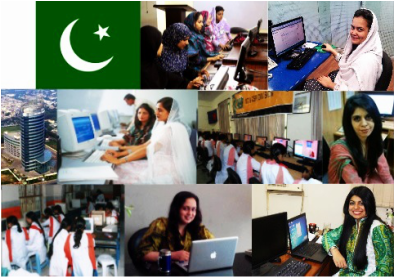 We start with the blunt yet honest views of a veteran company executive, “Do I think that females graduated in tech fields from good universities are less competent from their male counterparts? No! The competence is more or less equal, but the logistics and responsibility of taking on female employees is a lot more. You try to work with them and accommodate, train them, and then comes the big ‘mithai ka dabba’ (box of sweets) with an I-am-getting-married-and-it’s-time-for-me-to-get-on-with-my-real-life.” This point of view makes me wonder, 60% of the new male graduates change their first job within 2 years. But their reasons are more materialistic: a better job offer, more opportunity of personal growth, an opportunity abroad, starting one’s own startup etc. I wonder if it is just the reason “I am leaving to raise a family” that generates the cynicism. Another similar yet cautious point of view, “A disadvantage I have noticed is the long term commitment of female technical resources, often due to wedding timeline, that forces them to pursue their higher studies and gain some experience in between their graduation year and the year of wedding, usually 4-5 years for highly capable and skillful females. This potentially puts them off the radar of management to consider for more responsibility and future investment.” Yes it is true that once female engineers leave the work force, they rarely return. It is also true that females, in our current society, usually do not have much influence on when they get married (it’s another debate why and how to change that), which results in random job leaving patterns. But what we need to understand is that these girls are not making these decisions as per their free will. These decisions are, for the most part, society dictated and we all are collectively responsible for them. The same managers, team leads, executives need to support their daughters to build their careers, should encourage their wives to return to the work force. And in the meanwhile, let them contribute to your company for these few years that they do have! Having the pre-conceived notion that they are not interested and will leave at any moment is, perhaps, stopping the managers from utilizing a high quality resource that can contribute more to their company in a few short years because of their drive to prove themselves in the limited amount of time they have. And certainly, on the flip side of the coin, young girls of Pakistani society need to understand that getting married is neither the ultimate goal nor the ultimate respectable achievement of one’s life. Returning to our main topic of discussion, a manager at a leading software house, with 5 years of experience, shared these thoughts about empowering, employing and engaging women in the tech industry: “I think it is much easier and productive to have a team from inception having a good gender mix than introducing it later. Honestly, if we introduce female team members later, the guys get distracted! They get distracted if the female is not doing well (the help the damsel in distress kicks in) and they get distracted if the female is doing well (the male ego kicks in). The work is stressful, do we need to add this extra layer of complexity? I wonder sometimes.” I tend to agree with the thought that a team formed on the basis of diversity gets a much smoother sailing than one that has to be re-engineered by the unfreeze-change-freeze cycle. And the data that I have collected shows this trend. As can be seen in the table, the newer the company/startup is, the more female participation it entails. However, existing companies must realize that the most compelling argument in favor of increasing the number of female employees in tech is not just about doing what’s ‘right’ – it’s an economic argument, and quite a powerful one, at that. There is overwhelming research pouring in (see reference links below) that teams do better when they are composed of people with the widest possible range of personalities. Being around people who are different from us makes us more creative, more diligent and harder-working.
Many managers consistently appreciated and recognized the soft skills of female engineers: “To be honest, I prefer a good chunk of female engineers in the team. I have found them to be more responsible and conscientious in their assignments. Besides they keep the overall environment, somehow, stable.” “Females usually are found to be more respectful and decent in their attitude, it adds up to build on top of their overall skill set.” When asked various female tech employees to share their thoughts and experiences, we received some interesting inputs. Let’s start with the brief and globally accurate statement: ” I feel that people underestimate girls, not only in practical life but in educational life also in the computer science field”, says a fresh graduate software engineer. About their involvement in the team dynamics and decision making process, a software engineer with 2 years of experience shares, “It was difficult at times to get my view on the solution to a project problem appreciated easily as I felt that the male colleagues were mostly the team leads in the organization and they would always make decisions themselves. There was little delegation of authority.” I hear what she is saying. Indeed it so happens that they like you till you start talking, more specifically till you start questioning them in any way. As long as you are ok with the decisions and direction made by the male colleagues/managers/leads they are quite supportive of you. But if you make a suggestion or register your reservations with something, the shall-I-listen-to-a-female-and-be-mocked-the-rest-of-my-life attitude kicks in. You have to be very careful in which fights to pick. An encouraging response came to the question on sexual harassment: “Sexual harassment? Hmm no I don’t think I have faced anything that in the face. There is sexual objectification for sure, like the guys making up their minds on their own ‘oh she will not want this work’ or ‘oh she will not be able to go to this meeting’ etc but I have not felt harassed or physically unsafe at my job environment”, shares a software developer with three years of industry experience. A female engineer with ample experience both in the industry and academia shares, “I'll not say ‘sexually harassed’ but yes objectified for sure. Just because I won't look and sound like most of the females there. I used to dress following the modern trends and never covered my head with dupatta, also my style of working was very different from the rest of the lot which made me an object of discussion in almost every group.” And with objectification, comes unwanted attention, “One of my fellow colleagues started approaching me with un-necessary compliments. He was interested in having personal conversations. It became difficult to work after office hours as he used to choose that time for approaching. He was consistent and insistent even after I showed him my displeasure. The issue was immediately addressed by the higher management who is very strict and supportive in such matters.” In my experience and research, male managers, team leads or higher ups are generally quite protective of their female team members and like to take them “under their wing” for the most part. It is, for the most part, culture driven. Most of the female engineers I talked to described the relationship with their boss/manager as healthy, friendly and yet professional. Female engineers do get a slack as far as late sittings are concerned, I received consistent answers across the board: “One advantage I believe in is that they don't force me to work after office hours (9:00 AM-6:00 PM). And they also provide pick n drop service to females.” “In some situations, I am allowed take a leave because of bad weather. I took half leave in critical political situation as well.” “Females are mostly discouraged to do late sittings, so our leads take the responsibility of our work.” “We are saved from the trouble of late sitting or visiting far places often unless proper arrangements are made. But this, on the hand, limits our exposure and opportunities.” A dear friend, and a program manager for more than three years at a recent startup beautifully summed up her thoughts, “Both advantage and disadvantage of being a female in tech industry are connected and difficult at the same time. Advantage at one place becomes a disadvantage at another. E.g. it is a common belief that a woman can't be a good programmer. With such a belief it is difficult to gain trust and takes an effort to prove oneself. However, once proved, a woman is appreciated and envied a lot more at the same time. Moreover, position earned with effort is a lot appreciated by most, whereas, there is always a group who thinks it's a favor bestowed because of being a female. “ My final thoughts, why do I believe that we should have equal number of female employees in the tech industry? Yes I am a feminist, but it has nothing to do with it. Yes I support the cause of female financial independence, but it has nothing to do with it either. I believe that we must have equal number of female employees in any industry, especially tech industry because DIVERSITY MAKES US SMARTER! And for groups that value innovation and new ideas, like the tech industry, diversity is an absolute must! References and further reading
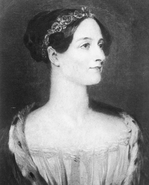 By Deanna Kosaraju Global Tech Women Happy Ada Lovelace Day! To celebrate the past, and honor Ada Lovelace, Global Tech Women will dedicate this post to the future of women in technology. What can we do to create a culture of technology that is exciting, inclusive, and puts the tools in the hands of people who can change their communities and impact the world?
We think Ada herself would agree. It's time for something new. We will be talking about all of these ideas, featuring companies and people who exemplify the future of tech, and bringing the global community together at the upcoming Voices Conference the week of March 8th 2015. We hope you will add your voice to the global conversation! The deadline to submit an idea in November 17th. 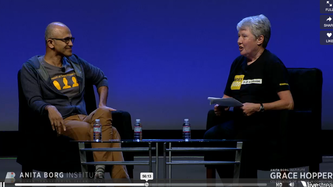 By Deanna Kosaraju, Global Tech Women We all watched in horror as a casual exchange between Microsoft Board Member, Maria Klawe and newly minted CEO Satya Nadella took a nasty turn. As someone who ran the Grace Hopper Celebration for Women in Computing from 2006 to 2011 and the conference founder for Grace Hopper India, this was a nightmare I never experienced, but I have seen this situation before. Satya Nadella was right...until he wasn't. Nadella, like many male tech CEOs believes that tech is in fact a meritocracy and if you just "work hard enough", you will be rewarded (i.e. Karma). Many of us women in tech used to believe that too -- until it wasn't. Many of us (me included) learned through a very painful process what the culture of tech really means if you are a woman. At this very same conference, in 2007, a group of male executives were sitting behind closed doors in a private session run by a very savvy facilitator. She asked "Who in this room believes their company is a meritocracy?". All the hands went up. For the next several hours the concepts of unconscious and corporate bias were explained, the data was revealed -- about half of all women in tech leaving before they reach mid-level. One CTO stood up at the end and said, "My assumptions were wrong. I am going to do something about this." An advocate was born. He is still an outspoken proponent of women in technology working tirelessly to change the culture of tech. Back to Nadella. He didn't have this "consciousness raising" moment. He didn't have the facilitator nor the support of his peers in a space where realization is powerful. He found this out yesterday, on stage, in front of 8000 women in tech and the broader global Community online. It was a painful moment to watch and a situation that took a potential advocate and shook him to his core. He was right...until he wasn't. He was not alone at the Conference. The Male Allies panel faired hardly better where accusations of placing mens voices in a plenary at the expense of women hit Twitter. The CEO of GoDaddy who again, like Nadella, is put on stage without the badly needed process of listening and understanding BEFORE speaking, especially given GoDaddy's track record. Advocates in positions of power, like Nadella, can help change the culture of tech. This Conference is a huge opportunity for advocates to listen to what women need and to work on the culture of technology globally TOGETHER to make it a reality. You are invited to be part of these important conversations at our upcoming Voices Conference in March. I hope you will take part in discussing how all of us together can be the change necessary to make technology an innovative, exciting and inclusive culture no matter where you are in the world. |
|


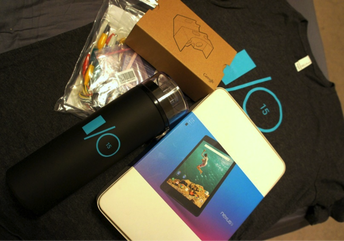
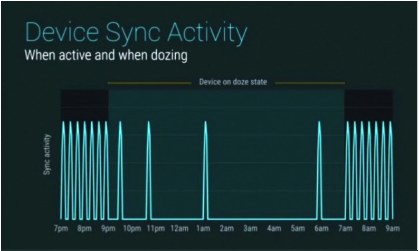
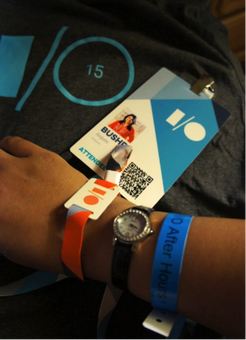

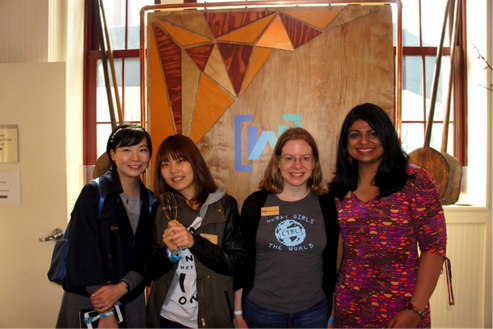
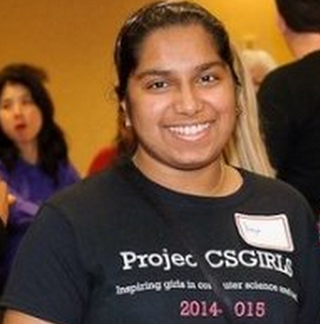
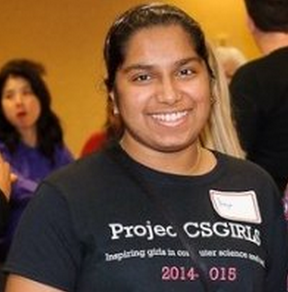
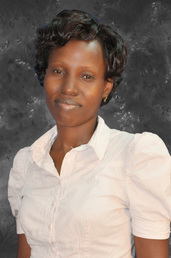
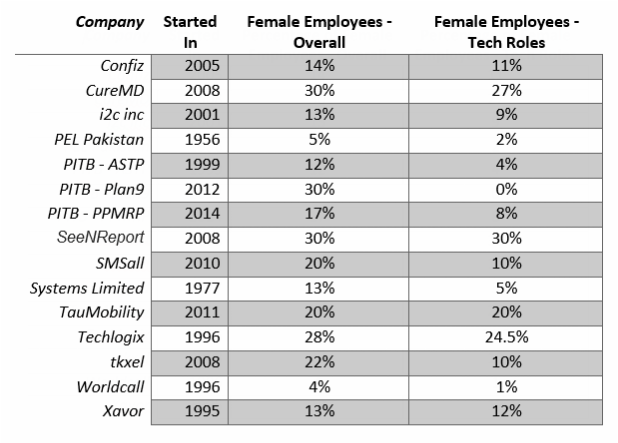
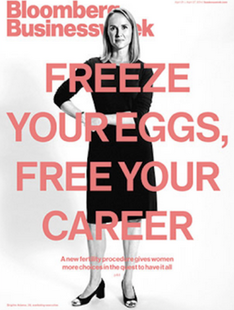
 RSS Feed
RSS Feed